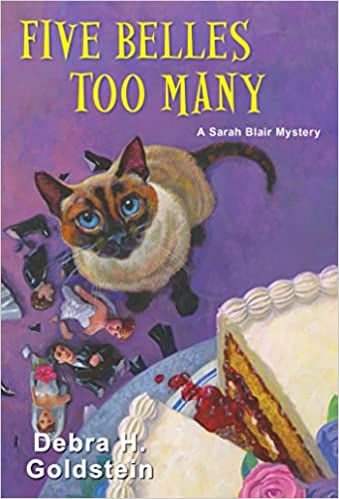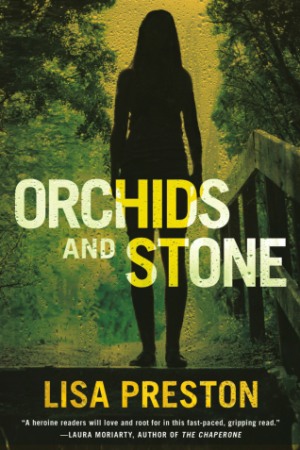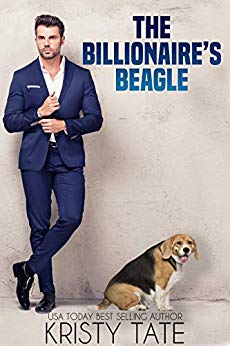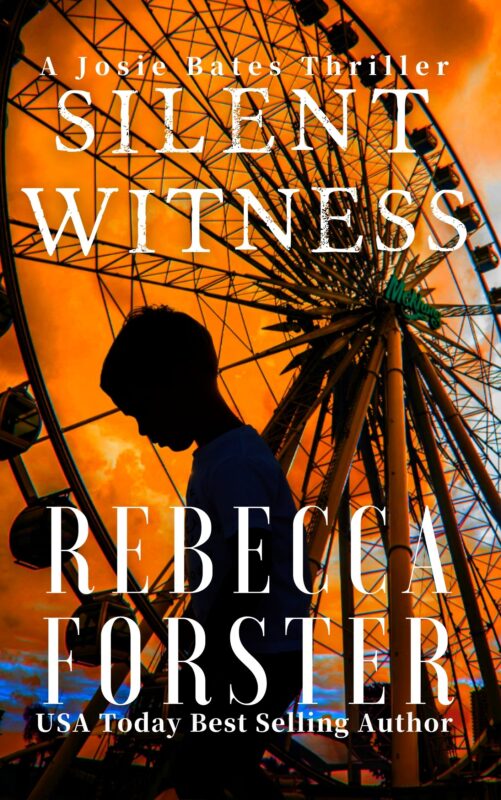The BWR 2025 Short Story Award competition opens soon!
December 13, 2024 by Bethlehem Writers Group in category From a Cabin in the Woods by Members of Bethlehem Writers Group tagged as 2025 Short Story Award, Bethlehem Writers Group, BWG
Beginning in January 2025, the BWR Short Story Award will open the competition soliciting stories of 2,500 words or fewer on the theme of Speculative Fiction (tales of science fiction and fantasy, broadly interpreted).
The winners receive cash and publication, with the first-place winner being considered for their upcoming anthology, Illusive Worlds: Sweet, Funny and Strange Tales of Science Fiction and Fantasy, forthcoming in 2026.

Contest will open January 1, 2025 and the deadline will be March 31, 2025. The 2025 contest judge will be science-fiction and fantasy author Adrian Tchaikovsky.
For more information on the 2025 Short Story Award, click here. You can read an interview with Mr. Tchaikovsky here.
Other BWG Publications
When SEO Works The Way It Should
December 12, 2024 by Denise M. Colby in category The Writing Journey by Denise Colby tagged as Denise M. Colby, Marketing for Authors, SEOI wanted to share a fun full circle moment. It has to do with the SEO I created in a 2019 blog post on my own website. And a current search in 2024. The SEO worked the way it should. Which is why I titled this blog post When SEO Works The Way It Should.

Here’s what happened.
My youngest son had been helping me search for Christmas stockings on his own computer. We want to find one to match our current style. What we have are all Disney themed and have a character head at the top.
My husband and I first got our Christmas stockings the year we were married, which was 1995. A few years later, after our first son was born, we were able to add to the original set. We decided to purchase all that we could find for future children. We have six stockings in the set, with one being used for the dog.
In 2019, I had written a blog post about my favorite decorations at Christmas time. I mention the history behind our stockings and included a picture of our stockings. I added alt text for the photo and named it before uploading it. Other decorations are mentioned in the blog post, but it’s the stockings that are relevant to today’s post.
Flash forward back to 2024. When my son and I were googling Mickey Christmas stockings 1995, my blog post from 2019 popped up. It was a full circle moment. And it shows that if you spend the time setting up your SEO well, people will find your blog posts. This means it’s important to use phrases for your alt text on your images people would search by.
Why is Denise talking about SEO?
Denise loves to share learnings about blog and website SEO. She teaches classes on SEO and author branding as well. One of her blog posts is titled Why SEO Should Matter to An Author. Sign up for her Marketing for Authors newsletter on her website.
Denise loves to share about her writing journey (see all her posts here), including her word of the year (this year it is GROW), her debut novel When Plans Go Awry, and all the things in between. You can visit her at her website and blog at www.denisemcolby.com or on her facebook or instagram. Please note: some links include Amazon Associate links where Denise can earn from qualifying purchases.
0 0 Read moreHow I turned Scrooge into a Sexy Hunk in ‘A Naughty Christmas Carol’ by Jina Bacarr
December 11, 2024 by Jina Bacarr in category Jina’s Book Chat, Writing tagged as Christmas, Christmas eve, holiday, novella, Scrooge
I’ve always loved the Dickens’ holiday classic about Scrooge and his scratchy quill pen. But what if Scrooge worked on Wall Street and used a smartphone?
Sounds good. I set my fingers to tapping on my keyboard. I know the story by heart, including Scrooge complaining about giving his clerk the day off on Christmas and sending the poor to workhouses.
But we live in a social media world with Facebook, Instagram, and TikTok. I had to update the story. And I wanted my Scrooge to be a sexy hunk. So I let my imagination run wild.
Imagine you’re rushing around doing last minute Christmas shopping and you run smack into the most gorgeous man you’ve ever seen. Tall, broad shoulders, muscular chest filling out a well-cut $5,000 suit. Silky pin-striped tie, platinum cuff links. His deep blue eyes casting bold glances your way your mama would never approve of. But you do.
Oh, my.
‘Do you work around here?’ you ask casually, loving the way he smells just like in the commercial when he leans over to see if you’re okay. You nearly faint when you get a whiff of his aristocratic masculine scent. Sweet tobacco, musk. Cinnamon. He smells divine.
‘I work on Wall street,’ he says, smiling.
A banker, nice.
‘It’s hard to get an Uber this time of day,’ he says, so he sends you home in his limo.
You can’t believe your luck. Is he one of those sexy billionaires you’ve been reading about? You bet. You’re hooked. A Christmas present in your silk stocking and it’s only Christmas Eve. He gives you his business card and invites you to have holiday brunch with him in his penthouse.
You’re beside yourself with glee, humming a jingly tune.
Then you read his card.
Ebenezer Scrooge.
No, no, no…
I hit the Delete button.
It ain’t gonna work.
No matter how handsome, how sexy, how rich, who’s going to fall in love with a guy named Ebenezer? It’s obvious Dickens’ curmudgeon with his ill-fitting suit and stovepipe hat isn’t cover model material. No way would you want him catching you under the mistletoe.
Therein lies the rub: How to make my Scrooge sexy? And stay true to the Dickens’ classic? A timeless story of the hero seeing the error of his ways. That’s what we love about the story, watching him change. I wanted to take that idea a step further and write about an alpha male gone wrong who finds his way home through the love of a beautiful woman.
First, Scrooge needed a new name.
Nick Radnor.
Then I had to make the other characters sexy as well. What if his faithful clerk, Mr. Cratchit, was a gorgeous blonde secretary named Jinger?
I decided my modern Scrooge would also have a beautiful fiancée named Monique:
Nick frequents Mamie’s, a gentleman’s club in the financial district and Marley the Ghost became Nick’s business partner, Charlie Harris, who died in the arms of a beautiful woman at Mamie’s.
And we can’t forget the Ghosts of Christmas Past, Present, and Future: three sexy female spirits with great bods and killer wardrobes. Not to mention magical powers.
Once I had my cast of characters (I have a Tiny Tim character, too), now what?
I wanted to stay true to the Dickens’ classic, so I opened the story on Christmas Eve in Nick’s office. It’s late and Nick is working overtime when Jinger asks him about a promotion. Not this year, Nick says.
Nick is a heartless one-percenter. Just like Scrooge. I had to find out why Nick is so cold-hearted. It goes back to Christmas Eve when he was a kid and his corporate raider father gave him coal in his stocking every year. That’s why Nick hates Christmas. He’s turned cold and heartless but he’s about to find out where that path is taking him when he convinces Mamie to open up her club for him late on Christmas Eve.
The old gal adores Nick, and not just his generous tips. Mamie sees something in him no one else does: he’s a lost little boy. She also knows Nick is still grieving over the sudden death of his business partner Charlie last Christmas Eve.
When Charlie’s ghost shows up after a night of wild drinking and womanizing, we’re off and running. The three ghosts make their appearance just like in the classic story and we discover Nick wasn’t always a greedy businessman. These three sexy babes take Nick on a whirlwind tour of his past, present, and future with each episode tied to his beautiful fiancée, Monique.
Monique is the anchor in my story. She never stops believing in her man, no matter what. It’s through her eyes that we fall in love with Nick, hoping he wakes up before it’s too late and he loses everything.
Including her.
A Naughty Christmas Carol is the story of a modern day Scrooge with three sexy female ghosts trying to save the soul of a Wall Street trader on Christmas Eve.
Merry Christmas, everyone!
~Jina
A Christmas Novella for 99 cents:
Amazon Kindle https://a.co/d/inSjIhf
Smashwords https://www.smashwords.com/books/view/99354
Kobo https://www.kobo.com/us/en/ebook/a-naughty-christmas-carol
Apple Books https://books.apple.com/us/book/a-naughty-christmas-carol/id480420054

A Sci-Fi/Fantasy Boxset Giveaway by Kitty Bucholtz
December 9, 2024 by Kitty Bucholtz in category Writing tagged as boxsets, fantasy, fantasy romance, giveaway, It's Worth It, Kitty Bucholtz, Sci-fi, Urban FantasyIt’s been a long time since I participated in a group promo, but I’m finally doing one through BookFunnel. My second one actually. I was thrilled to be able to sit with Jack from BookFunnel when I was at the Author Nation conference last month as he explained some things I didn’t know how to do. Hence, my second author promo!
It’s not as hard as I thought it’d be though it is a bit of work that I have to plan out. For instance, the rules for this one include mentioning the month-long giveaway at least twice in your newsletter as well as posting about it on three social media platforms twice a week for the four weeks. That’s more promo than I usually do in a month! But it’s probably helping me create better promo habits. Haha!
If you’ve been thinking about doing a BookFunnel group promo, give one a try! You can do it! It’s worth it!
And if you like sci-fi and fantasy novels, click here to check out all the free boxsets being given away during the promo.
In addition to the free books, the host of this giveaway loves gift-giving, so here are all the other things you can win between now and December 25 — a winner every day! [Note: I’ve cut and pasted what the host sent us so you can see how easy it can be to share all the information if you have a great host!]

Enter the “25 Days of Boxsets” Giveaway to be 1 of 25 winners to win AMAZING holiday gifts, incl:
- e-books, hardcovers, and paperback books!
- Amazon Kindle Fire tablets
- Gift cards
- Kindle Unlimited subscriptions
- Amazon Prime subscriptions
- Audiobooks
- Reader-centric stocking stuffers
- Super cool holiday gifts, and more!
ALSO, ONE LUCKY *GRAND PRIZE* WINNER WILL WIN A “CHOOSE YOUR OWN ADVENTURE” MEGA GIFT SET, INCL:
- A drink maker (coffee, tea, soda, or hot chocolate) + supplies
- A snack maker (mini donuts, mini waffles, popcorn, or s’mores) + supplies
- A hobby supply set (for writing, reading, art (drawing/painting) or manga/comic creating), and,
- A “stay cozy gift set (a wearable hoodie blanket, cozy socks, cozy slippers).
** There’s 1 Grand Prize Winner and 25 Runner Up Winners, but ALL ENTRANTS GET A *FREE* ENTRY PRIZE: 25 sci-fi and fantasy e-book boxsets! **
**Share on social media to get EXTRA entries and to increase your chances of winning!**
0 0 Read moreELDRITCH, INC by Christopher D. Ochs
December 8, 2024 by marianne h donley in category Spotlight tagged as Christopher D. Ochs, Eldritch inc, fantasy, Magical realism, new release, science fiction

After an alien intrusion mutates his fiancée into a monster, grad student Michael Avery Yeager is dragged into the world of magic, super-science, spirits, demigods, parallel realities, and amazing coffee.
He’s given the choice of joining Eldridge & S.Q.Amos, Inc. to find a cure for the woman he loves, or lose her—and the memory of her—forever.
Michael doesn’t expect that an out-of-the-way insurance company is Earth’s sole protector against the forces that crawl out of the darkness. Nor does he expect to uncover the unearthly secret within himself that ties him to Eldridge.
Who knew preventing Armageddon required so much on-the-job training?
The X-Files meets The Hitchhiker’s Guide to the Galaxy in this science-fiction/fantasy/horror mashup!
Other Books By Christopher D. Ochs
Affiliate Links
A Slice of Orange is an affiliate with some of the booksellers listed on this website, including Barnes & Nobel, Books A Million, iBooks, Kobo, and Smashwords. This means A Slice of Orange may earn a small advertising fee from sales made through the links used on this website. There are reminders of these affiliate links on the pages for individual books.
Search A Slice of Orange
Find a Column
Archives
Featured Books
FIVE BELLES TOO MANY
When Sarah Blair’s mother participates in a reality show competition for brides in Wheaton, Alabama, things get a little too real as a murderer crashes the wedding party . . .
More info →ORCHIDS AND STONE
They’re trying to take me. Help! Help me, please.
More info →IN THE SHADOW OF THE VOLCANO
One Ex-Intelligence Official's Journey through Slums, Prisons, and Leper Colonies to the Heart of Latin America
More info →SILENT WITNESS
A mentally challenged child is dead; his father will stop at nothing to see the killer punished.
More info →Newsletter
Contributing Authors
Search A Slice of Orange
Find a Column
Archives
Authors in the Bookstore
- A. E. Decker
- A. J. Scudiere
- A.J. Sidransky
- Abby Collette
- Alanna Lucus
- Albert Marrin
- Alice Duncan
- Alina K. Field
- Alison Green Myers
- Andi Lawrencovna
- Andrew C Raiford
- Angela Pryce
- Aviva Vaughn
- Barbara Ankrum
- Bethlehem Writers Group, LLC
- Carol L. Wright
- Celeste Barclay
- Christina Alexandra
- Christopher D. Ochs
- Claire Davon
- Claire Naden
- Courtnee Turner Hoyle
- Courtney Annicchiarico
- D. Lieber
- Daniel V. Meier Jr.
- Debra Dixon
- Debra H. Goldstein
- Debra Holland
- Dee Ann Palmer
- Denise M. Colby
- Diane Benefiel
- Diane Sismour
- Dianna Sinovic
- DT Krippene
- E.B. Dawson
- Emilie Dallaire
- Emily Brightwell
- Emily PW Murphy
- Fae Rowen
- Faith L. Justice
- Frances Amati
- Geralyn Corcillo
- Glynnis Campbell
- Greg Jolley
- H. O. Charles
- Jaclyn Roché
- Jacqueline Diamond
- Janet Lynn and Will Zeilinger
- Jaya Mehta
- Jeff Baird
- Jenna Barwin
- Jenne Kern
- Jennifer D. Bokal
- Jennifer Lyon
- Jerome W. McFadden
- Jill Piscitello
- Jina Bacarr
- Jo A. Hiestand
- Jodi Bogert
- Jolina Petersheim
- Jonathan Maberry
- Joy Allyson
- Judy Duarte
- Justin Murphy
- Justine Davis
- Kat Martin
- Kidd Wadsworth
- Kitty Bucholtz
- Kristy Tate
- Larry Deibert
- Larry Hamilton
- Laura Drake
- Laurie Stevens
- Leslie Knowles
- Li-Ying Lundquist
- Linda Carroll-Bradd
- Linda Lappin
- Linda McLaughlin
- Linda O. Johnston
- Lisa Preston
- Lolo Paige
- Loran Holt
- Lynette M. Burrows
- Lyssa Kay Adams
- Madeline Ash
- Margarita Engle
- Marguerite Quantaine
- Marianne H. Donley
- Mary Castillo
- Maureen Klovers
- Megan Haskell
- Melanie Waterbury
- Melisa Rivero
- Melissa Chambers
- Melodie Winawer
- Meriam Wilhelm
- Mikel J. Wilson
- Mindy Neff
- Monica McCabe
- Nancy Brashear
- Neetu Malik
- Nikki Prince
- Once Upon Anthologies
- Paula Gail Benson
- Penny Reid
- Peter Barbour
- Priscilla Oliveras
- R. H. Kohno
- Rachel Hailey
- Ralph Hieb
- Ramcy Diek
- Ransom Stephens
- Rebecca Forster
- Renae Wrich
- Roxy Matthews
- Ryder Hunte Clancy
- Sally Paradysz
- Sheila Colón-Bagley
- Simone de Muñoz
- Sophie Barnes
- Susan Kaye Quinn
- Susan Lynn Meyer
- Susan Squires
- T. D. Fox
- Tara C. Allred
- Tara Lain
- Tari Lynn Jewett
- Terri Osburn
- Tracy Reed
- Vera Jane Cook
- Vicki Crum
- Writing Something Romantic
Affiliate Links
A Slice of Orange is an affiliate with some of the booksellers listed on this website, including Barnes & Nobel, Books A Million, iBooks, Kobo, and Smashwords. This means A Slice of Orange may earn a small advertising fee from sales made through the links used on this website. There are reminders of these affiliate links on the pages for individual books.






































































